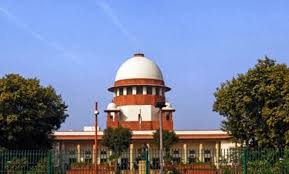
In a significant development, the Supreme Court has allowed eight petitions challenging various aspects of India’s anti-terror law, the Unlawful Activities Prevention Act (UAPA), to be withdrawn. This decision enables the petitioners to approach the respective high courts for further legal recourse.
The bench comprising Justices Bela M Trivedi and Pankaj Mithal granted permission for the withdrawal of the petitions, stating, “The counsel for petitioners seek permission to withdraw the petitions and approach the concerned high courts within two weeks. Permission to withdraw is granted. Needless to say, the petitioner will be at liberty to file proceedings as permissible under law before the high court.”
One of the notable withdrawals included the petition filed by student activist Umar Khalid, who has been incarcerated since his arrest by the Delhi Police on September 13, 2020. Khalid withdrew his petition seeking bail and a writ petition challenging the constitutional validity of UAPA provisions, including Section 43D, which imposes stringent conditions for bail.
The bench’s decision came after the central government and the Tripura government objected to the maintainability of the petitions. It was suggested that the petitioners consider pursuing their cases in the respective high courts before approaching the apex court.
Among the petitions withdrawn were a public interest litigation (PIL) filed by the Foundation of Media Professionals and a writ petition by Biyumma, mother of Zakariya, an under-trial prisoner in the 2008 Bangalore blasts. Additionally, petitions by individuals including lawyers and journalists who were booked in connection with the 2021 Tripura violence were also withdrawn.
Advocate Prashant Bhushan, representing a group charged under UAPA for their fact-finding report on the Tripura violence, requested the court to extend the interim arrest shield granted to them. However, the bench declined the request, although it orally requested the state not to take any action for two weeks.
The Supreme Court’s decision marks the conclusion of the last batch of petitions challenging various provisions of UAPA pending in the top court. While some petitions made comprehensive challenges to UAPA, others questioned specific provisions, including section 43D, which allows the court to order the release of the accused on bail if there are reasonable grounds to believe the accusation is prima facie false.
This development underscores the ongoing legal scrutiny surrounding UAPA and its implications for individual rights and civil liberties in India. As petitioners prepare to approach high courts for further legal recourse, the broader debate on anti-terror laws and their compatibility with constitutional principles continues to unfold.
Sources By Agencies

